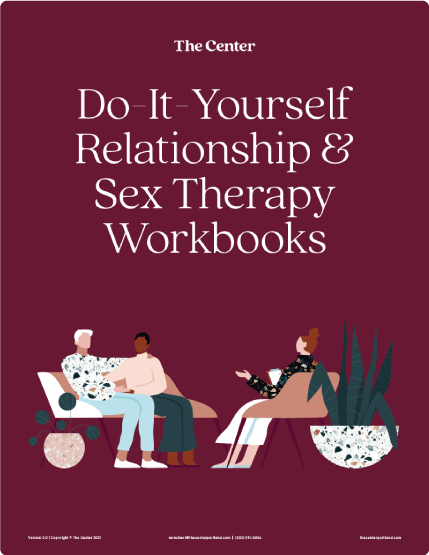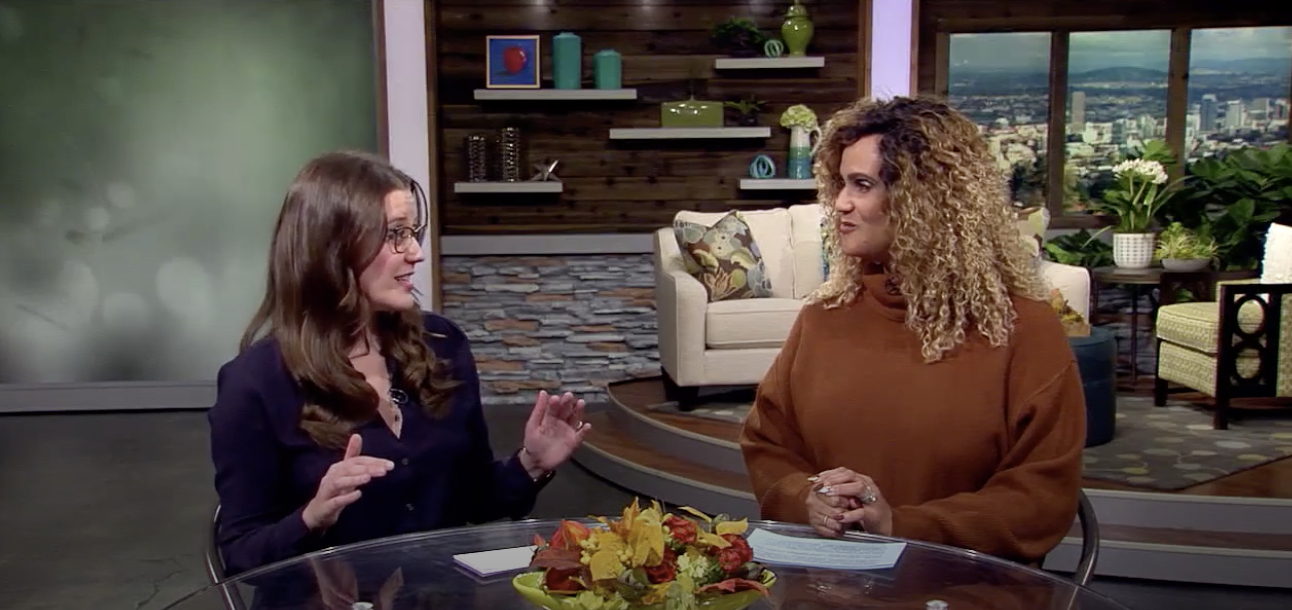It’s difficult to watch someone you love struggle with their mental health. You want to be a source of support for your partner, but it can be hard to know how.
You may wish you had the power to magically make everything better for your partner.
While that’s not possible, there are ways to support your partner as they deal with a mental health issue. At the same time, you can protect yourself from taking on too much.
Here’s how.
Signs Your Spouse Is Struggling With Their Mental Health
First, it’s important to note that mental health issues are quite varied. Different struggles can come with different signs. And one can only receive a specific diagnosis by visiting a licensed professional.
But, if you suspect your partner is struggling with some sort of mental health concern, here are some signs to look out for:
- Withdrawal from friends and family
- Loss of interest in hobbies
- Sudden change in sexual desire
- Changes in sleeping and eating habits
- Emotional outbursts, including bouts of sadness, irritability, or anger
- Mood swings
- Unhealthy coping behaviors
If you notice these signs or your gut is telling you that your partner is struggling, don’t ignore it. Talk to your partner and see how they’re doing. And let them know that you’re there to support them.
5 Ways to Support Your Partner Going Through Mental Health Issues
As couples therapists, we often hear from partners of those struggling with mental health. We know how hard it can be to watch someone you love suffer and not know what to do.
Here are a few ways to navigate this difficult situation.
1. Listen to What They Say
Talk to your partner and tell them you want to hear about what they’re dealing with.
Resist the urge to assume you know how they feel. Mental health affects everyone differently. Ask them about how they’re feeling and what you can do to help in the moment.
Sometimes they may just need to vent, while other times they may want you to help them problem-solve.
Thus, don’t immediately jump in with advice or try to fix the problem for them. Let your partner take their time and express how they’re doing.
A good way to show your partner you care is to practice active listening. Active listening just means listening to comprehend.
During active listening you are taking in what is being said, then paraphrasing to ensure that you understood their message. Being fully present and listening to your partner is one of the best things you can do to support them.
2. Get Informed
If your partner has recently been diagnosed with a mental illness, read up on their diagnosis and what it means.
Research the symptoms and common struggles to learn more about what your partner is dealing with. Sometimes the symptoms of mental health issues are not always obvious to someone who hasn’t experienced them firsthand.
As you gain a better understanding, remember that this mental health issue is something your partner deals with, but it does not define your partner. Don’t get too caught up in the label and forget the whole person. Instead, focus on understanding their struggle and the areas where they may need extra support.
3. Continue to Focus On Your Relationship Outside the Mental Illness
When one or more partners are struggling with their mental health, the mental health issue can become the focus of the relationship. Don’t neglect the relationship itself during this time.
It’s essential to continue focusing on your romantic relationship outside of the mental health issue.
Continue to communicate with each other, spend time together, and express your love. This is because maintaining the emotional connection is critical to the overall health of your relationship.
And if the connection has already become strained, you may find immense value in seeing a couples therapist.
4. Ask Them How They’d Like To Be Supported, But Don’t Be Their Therapist
By asking your partner how they would like your support, you are showing them that you care about them and their agency while preventing misunderstandings.
You’re also avoiding the pitfall of doing things for your partner without their consent. No one wants to feel like their partner is trying to control their actions and feelings.
Additionally, as a partner, your role is to encourage and support your loved one, not diagnose or treat their mental health issues. So, support your partner, but don’t become their therapist.
If your partner has indicated that they would like some extra support, encourage them to seek professional help. You can help them by assisting in the search for the right therapist.
5. Support Yourself Too
Self-care is not selfish. Yes, your partner needs support during this time, but your mental well-being is just as important.
When much of your energy goes to supporting your partner, it can be easy to neglect yourself and your needs. If you’re also struggling, then it’s no good for anyone in the relationship
Self-care is necessary to maintain a healthy and happy partnership. Stay mindful of your feelings and make sure you’re taking care of yourself, especially during challenging times.
And speaking with a therapist yourself can be helpful. Seeing a professional trained in couples therapy can help you strengthen the skills you’d like to cultivate to support your partner in a healthy way.
Can The Relationship Survive A Mental Health Issue?
Mental health issues can make a relationship more challenging. And it can be incredibly difficult when it feels like you are the one shouldering the burden of support.
Remember, a relationship requires effort from each partner. So while one of you is struggling with a mental health issue, it’s still important for each partner to continue giving the same effort to the relationship as before.
Continue to focus on and value your relationship outside of the mental health struggle. If you and your partner are willing to prioritize the relationship, then yes, your relationship can survive and even strengthen.
How We Help Couples Struggling With Mental Health
As couples therapists, our focus includes working with the issues that are getting in the way of your relationship.
Our goal is to help you build stronger connections, foster better communication, and develop the skills to bring you closer together. And if you or your partner could benefit from the support of an anxiety or depression expert, we make appropriate referrals as needed.
Overcoming a mental health issue takes time. But with the right guidance and support, you can continue to have a thriving and loving relationship.
Want to learn more about couples therapy? Contact us here.







